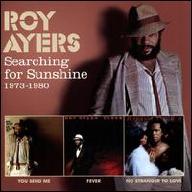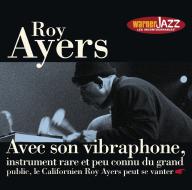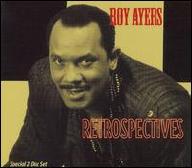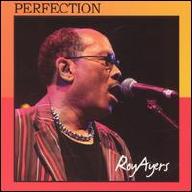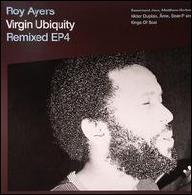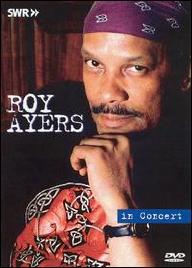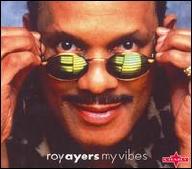Growing up in a musical family -- his father played trombone, his mother taught him the piano -- the five-year-old Ayers was given a set of vibe mallets by Lionel Hampton, but didn't start on the instrument until he was 17. He got involved in the West Coast jazz scene in his early twenties, recording with Curtis Amy (1962), Jack Wilson (1963 to 1967), and the Gerald Wilson Orchestra (1965 to 1966), and playing with Teddy Edwards, Chico Hamilton, Hampton Hawes, and Phineas Newborn. A session with Herbie Mann at The Lighthouse in Hermosa Beach led to a four-year gig with the versatile flutist (1966 to 1970), an experience that gave Ayers tremendous exposure and opened his ears to styles of music other than the bebop that he had grown up with.
After being featured prominently on Mann's hit Memphis Underground album and recording three solo albums for Atlantic under Mann's supervision, Ayers left the group in 1970 to form the Roy Ayers Ubiquity, which recorded several albums for Polydor and featured such players as Sonny Fortune, Billy Cobham, Omar Hakim, and Alphonse Mouzon. Initially influenced by electric Miles Davis and the Herbie Hancock Sextet, Ubiquity gradually shed its jazz component in favor of R&B, funk, and soulful disco, and put together a string of albums that hovered around the Top Ten of the R&B chart. These included Mystic Voyage, Everybody Loves the Sunshine, Vibrations, and Lifeline, which were released from 1975 through 1977. The last LP in this run featured "Running Away," a Top 20 hit on the R&B and disco charts.
During the '80s, besides leading his bands and recording, Ayers collaborated with Nigerian musician Fela Kuti, formed Uno Melodic Records, and produced and/or co-wrote several recordings for various artists. As the merger of hip-hop and jazz took hold in the early '90s, Ayers made a guest appearance on Guru's seminal Jazzmatazz album in 1993 and played at New York clubs with Guru and Donald Byrd. Ayers continued to make featured appearances on assorted recordings, including albums with the Soul Society, the James Taylor Quartet, 3D, and Postmodern Jazz. He led dates far less often than he had in the previous decades but remained active as a performer.
In 2020, he teamed with Ali Shaheed Muhammad and Adrian Younge for Roy Ayers JID002, the second volume in the duo's Jazz Is Dead series. Muhammad's A Tribe Called Quest was among the dozens of rap groups who exposed Ayers' '70s work to a younger generation.
Later that year, BBE released the digital single "Reaching for the Highest Pleasure." An earlier version from 1977 had been championed by Gilles Peterson and was included on the first of BBE's two Virgin Ubiquity (Unreleased Recordings 1976-1981) volumes in 2003. This longer take offered an extended Ayers' vibraphone solo atop a tight, circular bassline, showcasing the more spiritual side of the artist's iconic jazz-funk. In October 2022, BBE gave "Searching for the Highest Pleasure" its first-ever vinyl release as a 10" single. The flipside "I Am Your Mind, Pt. 2" was remixed by Parisian producer Pépé Bradock (aka Julien Auger); it originally appeared on 2006's Virgin Ubiquity Remixed. ~ Richard S. Ginell, Rovi


